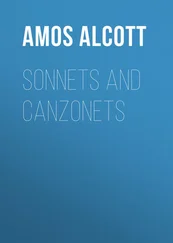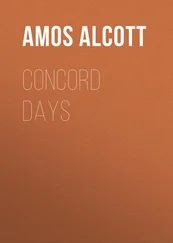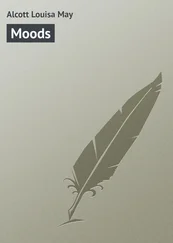Amos Alcott - Tablets
Здесь есть возможность читать онлайн «Amos Alcott - Tablets» — ознакомительный отрывок электронной книги совершенно бесплатно, а после прочтения отрывка купить полную версию. В некоторых случаях можно слушать аудио, скачать через торрент в формате fb2 и присутствует краткое содержание. ISBN: , Жанр: foreign_antique, foreign_prose, на английском языке. Описание произведения, (предисловие) а так же отзывы посетителей доступны на портале библиотеки ЛибКат.
- Название:Tablets
- Автор:
- Жанр:
- Год:неизвестен
- ISBN:http://www.gutenberg.org/ebooks/36825
- Рейтинг книги:4 / 5. Голосов: 1
-
Избранное:Добавить в избранное
- Отзывы:
-
Ваша оценка:
- 80
- 1
- 2
- 3
- 4
- 5
Tablets: краткое содержание, описание и аннотация
Предлагаем к чтению аннотацию, описание, краткое содержание или предисловие (зависит от того, что написал сам автор книги «Tablets»). Если вы не нашли необходимую информацию о книге — напишите в комментариях, мы постараемся отыскать её.
Tablets — читать онлайн ознакомительный отрывок
Ниже представлен текст книги, разбитый по страницам. Система сохранения места последней прочитанной страницы, позволяет с удобством читать онлайн бесплатно книгу «Tablets», без необходимости каждый раз заново искать на чём Вы остановились. Поставьте закладку, и сможете в любой момент перейти на страницу, на которой закончили чтение.
Интервал:
Закладка:
The earth is mine and mine the sheaves,
I'll harvest all her bounty leaves,
Nor stinted store she deals to me,
Gives all she has, and gives it free,
Since from myself I cannot stir
But I become her pensioner:
Sun, cloud, flame, atom, ether, sea,
Beauteous she buildeth into me,
Seasons my frame with flowing sense,
Insinuates intelligence;
Feeds me and fills with sweet contents,
Deals duteously her elements:
Dawn, day, the noon, the sunset clear,
Delight my eye; winds, woods, my ear,
While apple, melon, strawberry, peach,
She plants and puts within my reach;
Regales with all the garden grows,
Whate'er the orchard buds and blows;
Lifts o'er my head her sylvan screens,
And sows my slopes with evergreens,
While odorous roses, mint, and thyme,
Steep soul and sense in softer clime;
Preserves me when lapsed memory slips
Fading in sleep's apocalypse;
Surprising tasks and leisures sends,
And crowns herself to give me friends;
The morn's elixir pours for me,
And brims my brain with ecstasy.
Earth all is mine and mine the sheaves,
I harvest all her Planter leaves.
Orchards are even more personal in their charms than gardens, as they are more nearly human creations. Ornaments of the homestead, they subordinate other features of it; and such is their sway over the landscape that house and owner appear accidents without them. So men delight to build in an ancient orchard, when so fortunate as to possess one, that they may live in the beauty of its surroundings. Orchards are among the most coveted possessions; trees of ancient standing, and vines, being firm friends and royal neighbors forever. The profits, too, are as wonderful as their longevity. And if antiquity can add any worth to a thing, what possession has a man more noble than these? so unlike most others, which are best at first and grow worse till worth nothing; while fruit-trees and vines increase in worth and goodness for ages. An orchard in bloom is one of the most pleasing sights the eye beholds; as if the firmament had stooped to the tree-tops and touched every twig with spangles, and man had mingled his essence with the seasons, in its flushing tokens. And how rich the spectacle at the autumnal harvest:
"Behold the bending boughs, with store of fruit they tear,
And what they have brought forth, for weight, they scarce can bear."
Apples are general favorites. Every eye covets, every hand reaches to them. It is a noble fruit: the friend of immortality, its virtues blush to be tasted. Every Muse delights in it, as its mythology shows, from the gardens of the Hesperides to the orchard of Plato. A basket of pearmains, golden russets, or any of the choice kinds, standing in sight, shall perfume the scholar's composition as it refreshes his genius. He may snatch wildness from the woods, get shrewdness from cities, learning from libraries and universities, compliments from courts. But for subtlety of thought, for sovereign sense, for color, the graces of diction and behavior, he best betakes himself
"Where on all sides the apples scattered lie,
Each under its own tree."
Or to his bins, best, Columella says, when beechen chests, such as senators' and judges' robes were laid in in his day; these to be "placed in a dry place, free from frosts, where neither smoke, nor any thing noisome may come; the fruit spread on sawdust, and so arranged that the fleurets, or blossom ends, may look downwards, and the pedicles, or stalks, upwards, after the same manner as it grew upon the tree; and so as not to touch one another. And better if gathered a little green; the lids of the chests covering them close."
The ancient rustic authors give very little information concerning the apples and pears of their time, thinking them too well known to be described, as an author writing of our time might of ours. Most of them had their names from men who brought them into Italy and there cultivated them, and, "by so small a matter," says Pliny, "have rendered their names immortal."
Phillips thus describes the favorites of his time, most of which we find in our own orchards, and still in good repute: —
"Now turn thine eye to view Alcinous' groves,
The pride of the Phœacian isle, from whence,
Sailing the spaces of the boundless deep,
To Ariconian precious fruits arrived: —
The pippin burnished o'er with gold, the moyle
Of sweetest honied taste, the fair pearmain,
Tempered, like comeliest nymph, with red and white;
Nor does the Eliot least deserve thy care,
Nor John's apple, whose withered rind, intrenched
With many a furrow, aptly represents
Decrepit age; nor that from Harvey named,
Quick relishing. Why should we sing the thrift,
Codling, or Pomroy, or of pimpled coat
The russet; the red-streak, that once
Was of the sylvan kind, uncivilized,
Of no regard, till Scudamore's skilful hand
Improved her, and by courtly discipline
Taught her the savage nature to forget:
Let every tree in every garden own
The red-streak as supreme, whose pulpous fruit
With gold irradiate, and vermilion spires,
Tempting, not fatal, as the birth of that
Primeval interdicted plant, that won
Fond Eve, in hapless hour, to taste and die."
A quaint old Englishman, writing about orchards, quotes the proverb: "It will beggar a doctor to live where orchards thrive." So Cowley writes: —
"Nor does this happy place only dispense
Its various pleasures to the sense,
Here health itself doth live,
That salt of life which doth to all a relish give;
Its standing pleasure and intrinsic wealth,
The body's virtue, and the soul's good fortune, health.
The tree of life when it in Eden stood,
Did its immortal head to heaven rear;
It lasted a tall cedar till the flood,
Now a small thorny shrub it doth appear,
Nor will it thrive too everywhere;
It always here is freshest seen,
'Tis only here an evergreen:
If, through the strong and beauteous fence
Of temperance and innocence,
And wholesome labors and a quiet mind,
Diseases passage find,
They must fight for it, and dispute it hard
Before they can prevail;
Scarce any plant is growing here,
Which against death some weapon does not bear:
Let cities boast that they provide
For life the ornaments of pride;
But 'tis the country and the field
That furnish it with staff and shield."
Nor can we spare his praises of budding and grafting from our account: —
"We nowhere art do so triumphant see,
As when it grafts or buds a tree;
In other things we count it to excel
If it a docile scholar can appear
To nature, and but imitates her well:
It overrules and is her master here:
It imitates her Maker's power divine,
And changes her sometimes, and sometimes does refine;
It does like grace, the fallen tree restore
To its blest state of Paradise before;
Who would not joy to see his conquering hand
O'er all the vegetable world command,
And the wild giants of the wood, receive
What laws he's pleased to give?
He bids the ill-natured crab produce
The gentle apple's winy juice,
The golden fruit that worthy is
Of Galatea's purple kiss;
He does the savage hawthorn teach
To bear the medlar and the pear;
He bids the rustic plum to rear
A noble trunk and be a peach;
Even Daphne's coyness he does mock,
And weds the cherry to her stock,
Though she refused Apollo's suit,
Even she, that chaste and virgin tree,
Now wonders at herself to see
That she's a mother made, and blushes in her fruit."
"Thick growing thyme, and roses wet with dew,
Are sacred to the sisterhood divine."
Интервал:
Закладка:
Похожие книги на «Tablets»
Представляем Вашему вниманию похожие книги на «Tablets» списком для выбора. Мы отобрали схожую по названию и смыслу литературу в надежде предоставить читателям больше вариантов отыскать новые, интересные, ещё непрочитанные произведения.
Обсуждение, отзывы о книге «Tablets» и просто собственные мнения читателей. Оставьте ваши комментарии, напишите, что Вы думаете о произведении, его смысле или главных героях. Укажите что конкретно понравилось, а что нет, и почему Вы так считаете.












